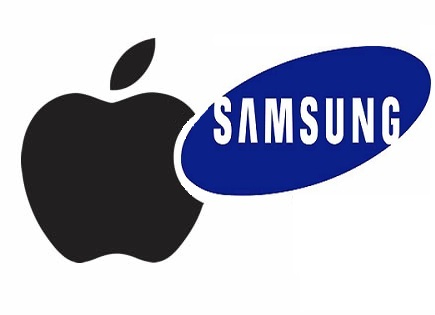In yet another case of its kind, Apple has pulled guns on Samsung, accusing the Korean electronics giant of destroying evidence. The motion, filed by Apple Inc. on May 1, 2012, in the Northern District of California for “spoilation of evidence” by Samsung Electronics Co. in the ongoing lawsuit of patent infringement. The motion implied that Samsung had been accused on the basis of spoilating “vast quantities of relevant evidence in blatant disregard of its duty to preserve all such evidence”.

Also, in an attempt to supplement the allegations it has made, Apple has very cleverly used the fact that a situation like this is not new for Samsung, and that it has earlier been involved in similar evidence destroying cases with other companies too, most recent being Mosaid Technologies, where Samsung allegedly had an ongoing policy of automatically deleting emails from custodian computers every two weeks.
According to Apple, Samsung, while being investigated by Korea’s Fair Trade Commission (KFTC), had destroyed a large amount of data to obstruct justice. According to KFTC, Samsung executive employees were also actively engaged in obstructing the on-site investigations on a Samsung facility. Apple even throws light on the fact that the KFTC investigation uncovered a 2011 email to a Samsung Executive Vice President describing the deletion of files regarding “Korean roadmap iPhone countermeasures” and other data.
As Samsung failed to produce this email on Apple’s demand as a tool for the ongoing legal dispute, Apple has very safely called this destruction of evidence. In its defence, Samsung had ridiculed all these allegations, calling them baseless and promised to support its stringent document retention company policies.
However, it is not surprising to note that this claim of Samsung’s, being the most disputed, is also the root for most of Samsung’s controversial line-ups. An issue on Apple’s front that hogged some limelight in the court was a similar case that involved Apple accusing the International Trade Commission (ITC) in a similar turn of events. This was utilised by Apple, which stated that Samsung did not require more time to respond as a similar reply brief was already filed with ITC.
A rebuttal by Samsung stated that their case allegations were different and involved different patents. Samsung quoted that “their obligation to preserve evidence in this case arose at a different time than the ITC action”. Also, Samsung claimed that it would require more time for a suitable reply as it would be reviewing bulky documents and pages of deposition testimony, and also closely examine the company’s practices, which would need some time.
One can only guess what the outcome of this sticky situation will be!
